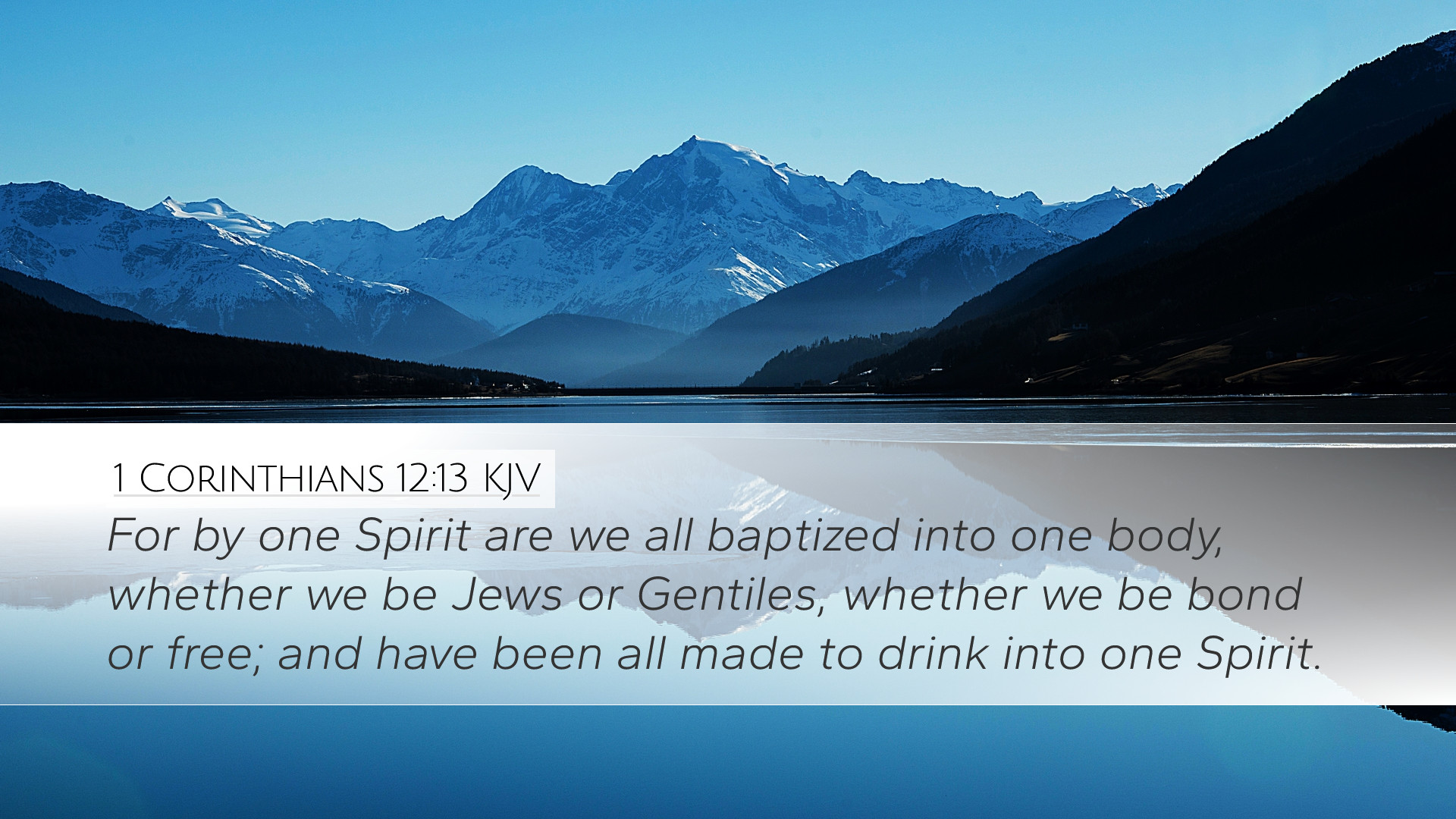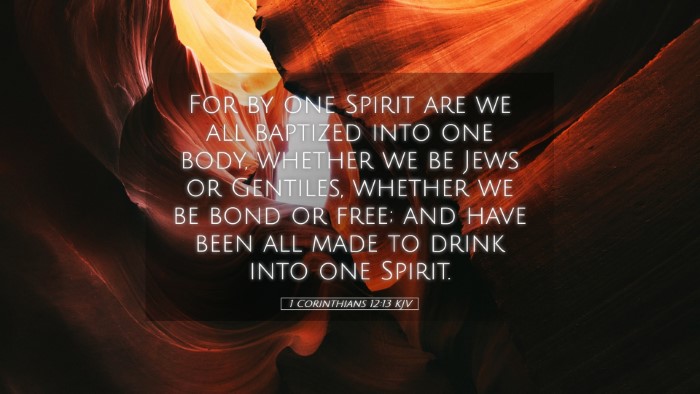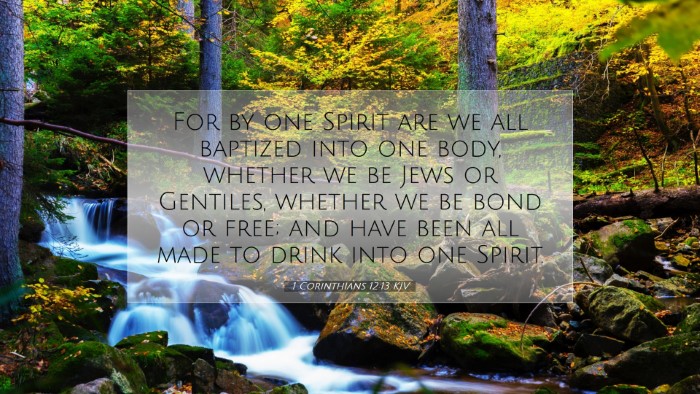Commentary on 1 Corinthians 12:13
1 Corinthians 12:13 (KJV): "For by one Spirit are we all baptized into one body, whether we be Jews or Gentiles, whether we be bond or free; and have been all made to drink into one Spirit."
Introduction
This verse is pivotal in understanding the unity of believers in Christ through the Holy Spirit. It underscores the theme of inclusion within the Body of Christ, regardless of ethnic, social, or personal distinctions. Commentators such as Matthew Henry, Albert Barnes, and Adam Clarke provide rich insights into this passage, highlighting its implications for the church and individual believers.
The Work of the Holy Spirit
In this verse, the Apostle Paul emphasizes that it is by one Spirit that all believers, without exception, are baptized into one body. This is a profound statement regarding the work of the Holy Spirit in the life of the church.
- Matthew Henry remarks that the baptism mentioned here refers to the spiritual baptism that occurs at the moment of belief. This baptism unites all believers, symbolizing regeneration and initiation into the body of Christ.
- Albert Barnes elaborates that the term "one body" represents the universal church, which transcends all human divisions. He emphasizes the importance of recognizing this unity among believers, regardless of their background.
- Adam Clarke further highlights the transformative role of the Holy Spirit, noting that the Holy Spirit not only unites believers but also empowers them for service within the body.
Unity in Diversity
The references to "Jews or Gentiles" and "bond or free" illustrate the radical inclusivity of the Christian faith. This was particularly significant in the first-century context where such distinctions were often divisive.
- Matthew Henry emphasizes that these categories cover all of humanity, demonstrating that in Christ, social status and ethnic background do not determine one's standing before God.
- Albert Barnes notes that the early church exemplified this unity, where diverse groups came together. He points out that this oneness is a work of the Spirit, who transcends barriers that divide humanity.
- Adam Clarke adds that this verse serves as a challenge to contemporary churches, urging them to cultivate an environment of acceptance and unity among diverse members.
Baptism and Its Significance
The idea of being "baptized into one body" is significant for the understanding of Christian initiation and belonging.
- Matthew Henry suggests that this baptism signifies both cleansing from sin and incorporation into the Body of Christ, indicating a transformation of identity.
- Albert Barnes points to the idea that the baptism of the Spirit represents a profound experience, giving believers a share in Christ's death, burial, and resurrection.
- Adam Clarke discusses the dual aspect of baptism—one that signifies the cleansing of sin and the other, the reception of the Spirit, illustrating the believer's new identity in Christ.
The Inclusivity of the Gospel
The inclusivity expressed in this verse is foundational for understanding the mission of the church. It calls believers to reflect the open invitation of the Gospel.
- Matthew Henry argues that this inclusivity should motivate believers to embrace all people, reflecting Christ's love and grace towards those different from themselves.
- Albert Barnes points out that this teaching should inspire the church to actively pursue unity and fellowship among various groups, reinforcing the message that the Gospel is for everyone.
- Adam Clarke warns against any form of elitism or exclusivity, urging the church to celebrate diversity as a gift from God that enriches the community of faith.
Conclusion
1 Corinthians 12:13 encapsulates the essence of Christian unity and the transformative power of the Holy Spirit. As noted by the commentators, this verse calls believers to live out their faith in unity, employing their diverse gifts for the collective mission of the church.
Pastors, students, theologians, and Bible scholars alike should draw from this theological richness, promoting an understanding of the Body of Christ that is inclusive, unified, and empowered by the Spirit. In doing so, they honor the foundational truths of the Gospel that transcend human divisions and celebrate the diversity of the body that God has created.


